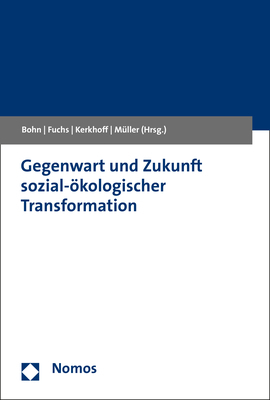Dekorationsartikel gehören nicht zum Leistungsumfang.
Sprache:
Englisch
28,00 €*
Versandkostenfrei per Post / DHL
Aktuell nicht verfügbar
Kategorien:
Beschreibung
How should we evaluate the ethics of procreation, especially the environmental consequences of reproductive decisions on future generations, in a resource-constrained world? While demographers, moral philosophers, and environmental scientists have separately discussed the implications of population size for sustainability, no one has attempted to synthesize the concerns and values of these approaches. The culmination of a half century of engagement with population ethics, Partha Dasgupta's masterful Time and the Generations blends economics, philosophy, and ecology to offer an original lens on the difficult topic of optimum global population. With careful attention to global inequality and the imbalance of power between genders, Dasgupta provides tentative answers to two fundamental questions: What level of economic activity can our planet support over the long run, and what does the answer say about optimum population numbers? He develops a population ethics that can be used to evaluate our choices and guide our sense of a sustainable global population and living standards. Structured around a central essay from Dasgupta, the book also features a foreword from Robert Solow, incisive commentaries from Kenneth J. Arrow, Joseph Stiglitz, Eric Maskin, and Scott Barrett, and a joint paper with Aisha Dasgupta on inequalities in reproductive decisions and the idea of reproductive rights. Taken together, Time and the Generations represents a fascinating dialogue between world-renowned economists on a central issue of our time.
How should we evaluate the ethics of procreation, especially the environmental consequences of reproductive decisions on future generations, in a resource-constrained world? While demographers, moral philosophers, and environmental scientists have separately discussed the implications of population size for sustainability, no one has attempted to synthesize the concerns and values of these approaches. The culmination of a half century of engagement with population ethics, Partha Dasgupta's masterful Time and the Generations blends economics, philosophy, and ecology to offer an original lens on the difficult topic of optimum global population. With careful attention to global inequality and the imbalance of power between genders, Dasgupta provides tentative answers to two fundamental questions: What level of economic activity can our planet support over the long run, and what does the answer say about optimum population numbers? He develops a population ethics that can be used to evaluate our choices and guide our sense of a sustainable global population and living standards. Structured around a central essay from Dasgupta, the book also features a foreword from Robert Solow, incisive commentaries from Kenneth J. Arrow, Joseph Stiglitz, Eric Maskin, and Scott Barrett, and a joint paper with Aisha Dasgupta on inequalities in reproductive decisions and the idea of reproductive rights. Taken together, Time and the Generations represents a fascinating dialogue between world-renowned economists on a central issue of our time.
Über den Autor
Professor Dasgupta is the Frank Ramsey Professor of Economics at the University of Cambridge. He is also the Andrew D. White Professor-at-Large at Cornell University and is currently President of the European Association of Environmental and Resource Economists. His books include Economics: A Very Short Introduction (OUP, 2017), Human Well-Being and the Natural Environment (OUP, 2004) and An Inquiry into Well-Being and Destitution(OUP, 1993).
Inhaltsverzeichnis
In Memoriam: Kenneth Joseph Arrow (1921¿2017)
Foreword, by Robert M. Solow
Preface
Random Thoughts on ¿Birth and Death,¿ by Kenneth J. Arrow
Birth and Death: Arrow Lecture
1. Economic Demography
2. Utilitarian Ethics
3. Ends and Means
4. Synopsis
Part I: Foundations
5. Genesis Under Total Utilitarianism
6. Death
7. A Problem Like Sleeping Beauty
8. Generation-Centered Prerogatives in the Timeless World
9. Generations Across the Indefinite Future
Part II: Applications
10. The Biosphere as a Renewable Natural Resource
11. Estimates of Globally Optimum Population
12. Technology and Institutions
13. Existential Risks and Informed Ends
Appendix 1: Socially-Embedded Well-Being Functions
Appendix 2: Common Property Resources and Reproductive Choices
Appendix 3: Notes on Rawls¿ Principle of Just Saving
Appendix 4: Modeling the Biosphere
Appendix 5: Inclusive Wealth and Social Well-Being
Appendix 6: Valuing Freedom of Choice
References
Commentary on Birth and Death, by Scott Barrett
Commentary on Birth and Death, by Eric Maskin
Commentary on Birth and Death, by Joseph Stiglitz
Response to Commentaries
Epilogue
Socially Embedded Preferences, Environmental Externalities, and Reproductive Rights, with Aisha DasguptäReprinted from Population and Development Review (September 2017)
Contributors
Author Index
Subject Index
Foreword, by Robert M. Solow
Preface
Random Thoughts on ¿Birth and Death,¿ by Kenneth J. Arrow
Birth and Death: Arrow Lecture
1. Economic Demography
2. Utilitarian Ethics
3. Ends and Means
4. Synopsis
Part I: Foundations
5. Genesis Under Total Utilitarianism
6. Death
7. A Problem Like Sleeping Beauty
8. Generation-Centered Prerogatives in the Timeless World
9. Generations Across the Indefinite Future
Part II: Applications
10. The Biosphere as a Renewable Natural Resource
11. Estimates of Globally Optimum Population
12. Technology and Institutions
13. Existential Risks and Informed Ends
Appendix 1: Socially-Embedded Well-Being Functions
Appendix 2: Common Property Resources and Reproductive Choices
Appendix 3: Notes on Rawls¿ Principle of Just Saving
Appendix 4: Modeling the Biosphere
Appendix 5: Inclusive Wealth and Social Well-Being
Appendix 6: Valuing Freedom of Choice
References
Commentary on Birth and Death, by Scott Barrett
Commentary on Birth and Death, by Eric Maskin
Commentary on Birth and Death, by Joseph Stiglitz
Response to Commentaries
Epilogue
Socially Embedded Preferences, Environmental Externalities, and Reproductive Rights, with Aisha DasguptäReprinted from Population and Development Review (September 2017)
Contributors
Author Index
Subject Index
Details
| Erscheinungsjahr: | 2019 |
|---|---|
| Fachbereich: | Allgemeines |
| Genre: | Wirtschaft |
| Rubrik: | Recht & Wirtschaft |
| Medium: | Buch |
| Seiten: | 344 |
| Inhalt: | Gebunden |
| ISBN-13: | 9780231160124 |
| ISBN-10: | 0231160127 |
| Sprache: | Englisch |
| Einband: | Gebunden |
| Autor: | Dasgupta, Partha |
| Hersteller: | Columbia University Press |
| Maße: | 236 x 159 x 30 mm |
| Von/Mit: | Partha Dasgupta |
| Erscheinungsdatum: | 25.06.2019 |
| Gewicht: | 0,593 kg |
Über den Autor
Professor Dasgupta is the Frank Ramsey Professor of Economics at the University of Cambridge. He is also the Andrew D. White Professor-at-Large at Cornell University and is currently President of the European Association of Environmental and Resource Economists. His books include Economics: A Very Short Introduction (OUP, 2017), Human Well-Being and the Natural Environment (OUP, 2004) and An Inquiry into Well-Being and Destitution(OUP, 1993).
Inhaltsverzeichnis
In Memoriam: Kenneth Joseph Arrow (1921¿2017)
Foreword, by Robert M. Solow
Preface
Random Thoughts on ¿Birth and Death,¿ by Kenneth J. Arrow
Birth and Death: Arrow Lecture
1. Economic Demography
2. Utilitarian Ethics
3. Ends and Means
4. Synopsis
Part I: Foundations
5. Genesis Under Total Utilitarianism
6. Death
7. A Problem Like Sleeping Beauty
8. Generation-Centered Prerogatives in the Timeless World
9. Generations Across the Indefinite Future
Part II: Applications
10. The Biosphere as a Renewable Natural Resource
11. Estimates of Globally Optimum Population
12. Technology and Institutions
13. Existential Risks and Informed Ends
Appendix 1: Socially-Embedded Well-Being Functions
Appendix 2: Common Property Resources and Reproductive Choices
Appendix 3: Notes on Rawls¿ Principle of Just Saving
Appendix 4: Modeling the Biosphere
Appendix 5: Inclusive Wealth and Social Well-Being
Appendix 6: Valuing Freedom of Choice
References
Commentary on Birth and Death, by Scott Barrett
Commentary on Birth and Death, by Eric Maskin
Commentary on Birth and Death, by Joseph Stiglitz
Response to Commentaries
Epilogue
Socially Embedded Preferences, Environmental Externalities, and Reproductive Rights, with Aisha DasguptäReprinted from Population and Development Review (September 2017)
Contributors
Author Index
Subject Index
Foreword, by Robert M. Solow
Preface
Random Thoughts on ¿Birth and Death,¿ by Kenneth J. Arrow
Birth and Death: Arrow Lecture
1. Economic Demography
2. Utilitarian Ethics
3. Ends and Means
4. Synopsis
Part I: Foundations
5. Genesis Under Total Utilitarianism
6. Death
7. A Problem Like Sleeping Beauty
8. Generation-Centered Prerogatives in the Timeless World
9. Generations Across the Indefinite Future
Part II: Applications
10. The Biosphere as a Renewable Natural Resource
11. Estimates of Globally Optimum Population
12. Technology and Institutions
13. Existential Risks and Informed Ends
Appendix 1: Socially-Embedded Well-Being Functions
Appendix 2: Common Property Resources and Reproductive Choices
Appendix 3: Notes on Rawls¿ Principle of Just Saving
Appendix 4: Modeling the Biosphere
Appendix 5: Inclusive Wealth and Social Well-Being
Appendix 6: Valuing Freedom of Choice
References
Commentary on Birth and Death, by Scott Barrett
Commentary on Birth and Death, by Eric Maskin
Commentary on Birth and Death, by Joseph Stiglitz
Response to Commentaries
Epilogue
Socially Embedded Preferences, Environmental Externalities, and Reproductive Rights, with Aisha DasguptäReprinted from Population and Development Review (September 2017)
Contributors
Author Index
Subject Index
Details
| Erscheinungsjahr: | 2019 |
|---|---|
| Fachbereich: | Allgemeines |
| Genre: | Wirtschaft |
| Rubrik: | Recht & Wirtschaft |
| Medium: | Buch |
| Seiten: | 344 |
| Inhalt: | Gebunden |
| ISBN-13: | 9780231160124 |
| ISBN-10: | 0231160127 |
| Sprache: | Englisch |
| Einband: | Gebunden |
| Autor: | Dasgupta, Partha |
| Hersteller: | Columbia University Press |
| Maße: | 236 x 159 x 30 mm |
| Von/Mit: | Partha Dasgupta |
| Erscheinungsdatum: | 25.06.2019 |
| Gewicht: | 0,593 kg |
Warnhinweis









